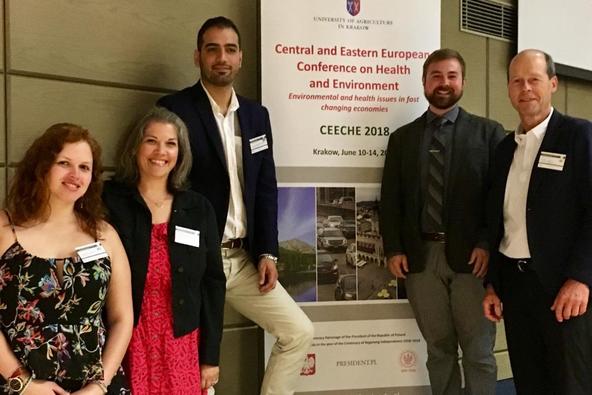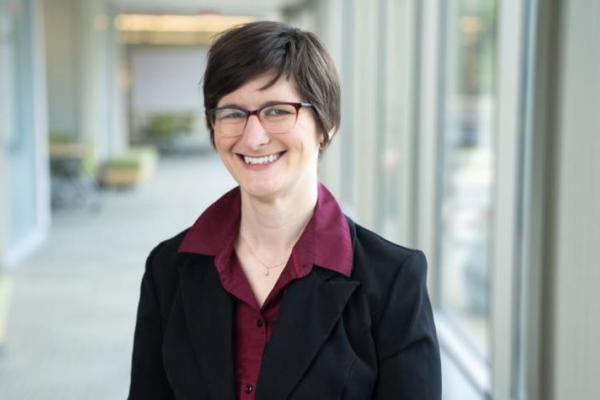UK Superfund Scientists Present Research at International Conference

Almost 13 million people die each year from preventable environmental causes. The World Health Organization reports that 25 percent of all deaths in children under the age of 5 are due to environmental causes. Established in 1994 by an initiative of the United States and European institutions, the Central and Eastern European Conference on Health and the Environment (CEECHE) brings Central and Eastern European countries together to facilitate scientific exchange, to foster collaborative and interdisciplinary work on protecting human and environmental health, and to provide solutions to improve environmental health. CEECHE conferences have been held at venues across CEE countries since 2004 to better define the complex but common links between health and environment and enable the use of shared understandings of current research.
From June 10–14, CEECHE 2018 brought nearly 200 scientists from 18 different countries to Kraków, Poland, to engage in discussions addressing health and environmental issues. The selection of Poland as a host country was not coincidental. Due to geographic location and fuel emissions, poor air quality in Kraków is an ongoing environmental challenge. However, Kraków is actively striving to address these challenges and is passionate about finding solutions. Rector and Professor Włodzimierz Sady, of the University of Agriculture in Kraków, welcomed conference participants by saying, “We have to realize that in this case money is not the most important. The lives and health of future generations are at stake, including over 150,000 students in Krakow.”
The National Institute of Environmental Health Sciences (NIEHS) Superfund Research Program played a prominent role in CEECHE 2018. Two NIEHS Superfund Research Programs, the University of Kentucky Superfund Research Center (UK SRC) and the Louisiana State University Superfund Research Center, collaborated to organize the conference. UK SRC Assistant Director Kelly Pennell served as the conference program co-chair along with Florian Gambuś, University of Agriculture in Krakow. Together, they worked closely with the CEECHE 2018 conference co-chairs Slawomir Lomnicki, Louisiana State University Superfund Research Center, and Stanisław Gawroński, Warsaw University of Life Sciences.
During CEECHE 2018, scientists presented data demonstrating significant environmental health impacts, including infertility, birth defects, cardiovascular disease, increased mortality associated with infections from environmental exposures. Other scientists presented innovative ways to assess pollution and reduce exposure risks. Pennell gave two oral presentations and co-chaired a plenary session. One of her presentations was included as part of a daylong workshop organized in cooperation with the United States Environmental Protection Agency (US EPA) to provide training to individuals in Central and Eastern European countries on current methods and advances in the environmental risk assessment and remediation of contaminated sites. Her other presentation summarized research related to improved approaches to assess indoor air pollution and reduce exposure risks that may be linked to congenital heart defects. Bernhard Hennig, director of UK SRC and member of the CEECHE 2018 conference committee, gave a plenary presentation, "Healthful Nutrition as a Modifier of Pollutant-Induced Inflammatory Diseases: Implications in Atherosclerosis."
The UK SRC sent postdoctoral trainee Mike Petriello and graduate trainees Amir Roghani and Angela Gutierrez to CEECHE 2018 to attend the conference and present their research.
William Suk, director of the NIEHS Superfund Research Program, strongly supports the worldwide collaborative research efforts of this conference, and especially the training of the next generation of students. He commented, “The training that occurs through international meetings by trainees and junior faculty, engaging and learning from each other, is critical in solving complex environmental health problems.”
More from this series Graduate Research
Credits
Text by Emily Koyagi (Kentucky Water Resources Research Institute).



